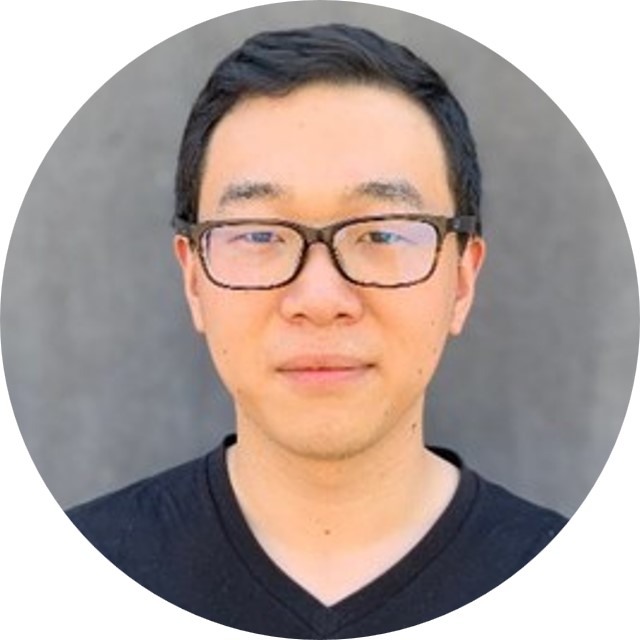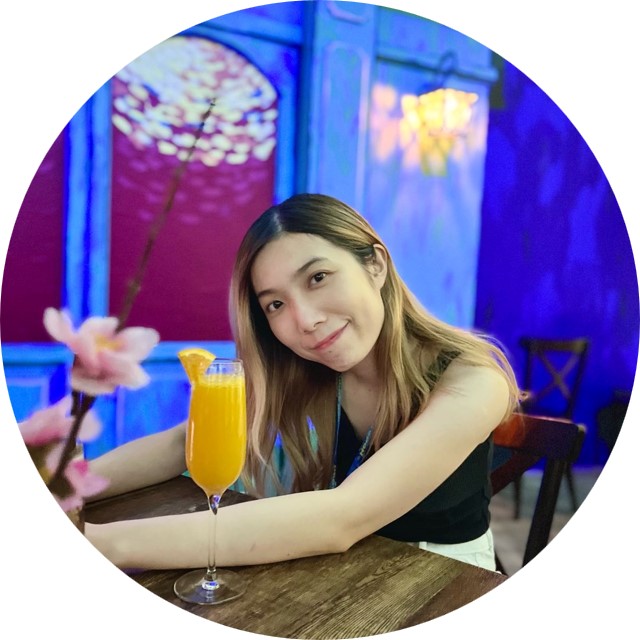CCCS 2022 Seed Funding Winning Projects
Winning Project
Comparative custom imaginaries: Chinese experience in the Pacific
A Study of Chinese residents' and workers’ attitudes toward both Chinese and Pacific customary land.
Project Introduction
This project will develop the research skills of a Chinese speaker and insert Chinese insights in the ongoing conversation about Pacific cities. One problem my work has identified, is that Australian aid projects can misunderstand customary land management, which makes aid less effective than it could be, e.g., Day (2020), Day (2022). Customary land management in the Pacific has many parallels with Chinese village land management. This project seeks the ideas about customary ownership that Chinese people bring with them when they arrive in Port Vila, Vanuatu’s capital city. Chinese investors are frequently caught in the intractable land disputes that also exist between indigenous landowners, or between customary tenants and landowners. The Chinese perspective on resolving these issues could be powerful.
This project could be impactful for understanding China-Pacific-Australian aid relations. China’s recent security pact with the neighboring Solomon Islands has upset the political balance that the United States and Australia presumed was in place. The Chinese influence on the culture of the Pacific Islands will increase in the coming years. Those who understand Chinese thought when it comes to land management will be prepared for deeper research on Chinese influence.
Bio
Dr. Jennifer Day is an Associate Professor in Urban Planning at the University of Melbourne. In both China and the Pacific, she has worked on the issue of urban displacement and evictions due to development, issues interconnected with climate change and disaster displacement. She is CI on the ARC Discovery Project with which this CCCS project is affiliated: Communities, Kava, Court Orders: The Ways of Possessing the Pacific City.

Winning Project
An indigenous orientation program for commencing Chinese international students
Project Introduction
Australian Indigenous knowledge is unique to an Australian study experience. Unfortunately, most international students do not have the opportunity to engage with the Australian Indigenous knowledge in meaningful ways, although universities are actively looking for ways to include indigenous perspectives into curricular. This Chinese student Indigenous orientation study aims to help Chinese international students engage in a meaningful learning experience of Australian Indigenous cultures.
This research will take a qualitative ethnographic methodology. Data collection will take place in Melbourne University (UniMelb) and Queensland University of Technology (QUT).
This project will offer Chinese international students an opportunity of a meaningful experience with Indigenous cultures. It will contribute to the literature with updated information about Chinese international students’ perspectives indigenous learning. This seed project will serve as a pilot of a larger project to development an online indigenous orientation program for international students in Australia. The collaboration will also foster inter-institutional collaboration between the two universities and bring together a diversity of First Nations knowledge from two geographical regions of Victoria and Queensland.
Bio
Dr. Dongmei Li is Lecturer Diversity and Internationalisation at Arts Teaching Innovation, Faculty of Arts, University of Melboure. Mei’s researcher interests include internationalisation of the curriculum, decolonisation in higher education, and international students’ learning experiences.

Dr Pranit Anand is a Lecturer, Learning Design at Queensland University of Technology. His research includes inclusive assessment practices, internationalisation of curriculum, student engagement and educational technology. He is an acclaimed higher education teacher having awarded numerous awards at various universities.

Winning Project
“Thousands of kilometers from home?” A study on Chinese international students’ motivation and learning experience in the post-pandemic era
Project Introduction
COVID-19 has a long-lasting effect on Australia’s higher-education system. Almost one third of international students remain abroad and are taking online courses, even though the Australian government and universities have taken active measures to bring them back to campus following the removal of border restrictions in late 2021. So what makes them hesitant to return? How have motivational and constraining factors been traded-off in their decision-making process?
This mixed-methods study uses survey and interview data to explore the motivations and mobility of Chinese international students during and after the Covid-19 pandemic. A Master program offered at the University of Melbourne’s Asia Institute is selected as a case study. This study can help Australian universities to better understand the expectations of their international student population and work to maximise students’ learning experiences and well-being. It can also provide an empirical basis for policymaking and provide insights into the core tasks facing Australian universities.
Bio
Yu Hao is a lecturer in Translation and Interpreting Studies at the University of Melbourne. Her research focuses on curriculum development, translation-technology teaching, as well as cross-cultural crisis communication. She is also a NAATI credited translator (English to Chinese, level three).

Anthony Pym is Professor of Translation Studies at the University of Melbourne, Distinguished Professor at Universitat Rovira i Virgili in Spain, and Extra-ordinary Professor at Stellenbosch University.

Yizhou Wang is a PhD researcher in Linguistics at the School of Languages and Linguistics at the University of Melbourne. His research areas include quantitative methods in language studies, psycholinguistics, phonetics, and applied linguistics.

Winning Project
Queer Taiwan, Then and Now
Project Introduction
Even before the legalisation of same-sex marriage in 2019, Taiwan was a regional and global leader in queer literature and art, as well as a forerunner in addressing societal issues related to gender and sexuality. This research group considers the development of these aspects of Taiwan’s art and society through a reading group focusing on texts from Taiwan, examining them in comparison with the development of similar movements in Australia and the West. In early 2023, we will host a workshop on the writing and translation of queer literature in collaboration with colleagues from Taiwan.
Bio
Craig A. Smith is a historian of modern China and Taiwan. Most recently, he is the author of Chinese Asianism: 1894—1945 and co-editor of Translating the Occupation: The Japanese Invasion of China, 1931—45. He graduated from Taiwan’s National Chung Cheng University with an MA in Taiwan Literature in 2010 and acquired a PhD in East Asian History from the University of British Columbia in 2014.

Yahia Zhengtang Ma is a PhD candidate at the Asia Institute. His thesis focuses on English translations of queer desires in Chinese literature. He has published in Melbourne Asia Review, TSQ: Transgender Studies Quarterly, Taiwan Insight andelsewhere. His translations can be found in Queer Taiwanese Literature: A Reader (Cambria, 2021) and Queer Time (AAWW, 2021).

Katie Fok began her PhD studies at the University of Melbourne after graduating from the Master of Translation and Interpreting program. Her research interests are varied but mainly focus on boys love manga translation studies and exploring the relationship between history, social phenomena and manga translation in Taiwan. She is a cat lover, a heavy sleeper, and a fan of Japanese manga and anime.

Winning Project
[Community Symposium] Dragon: Preserving the oldest surviving complete processional dragon in the world
Project Introduction
In 2021 the University of Melbourne's Grimwade Conservation Services was appointed by the Golden Dragon Museum in Bendigo via the Victorian Government’s Living Heritage Grants program to undertake significant conservation work to repair Loong, the oldest imperial processional dragon in the world. Recognised on the Victorian Heritage Register, Loong is displayed at the Golden Dragon Museum and has been cared for over time by the Bendigo Chinese Association.
Throughout the eight-month program of works to conserve Loong, several research discoveries were made which have advanced the field of conservation, in particular the significance of material culture in embedding cultural tradition in diasporic Chinese communities.
The Dragon symposium aims to present papers from the research project team alongside local Chinese community members to advance research discussion on Chinese diaspora as related to heritage preservation, intergenerational memory, and tradition, with a specific focus on Loong’s role in the retention of cultural tradition in Australia.
Date: 27 November 2022, Golden Dragon Museum in Bendigo.
Project video: https://www.youtube.com/watch?v=ycwQvcjfS0o&t=1s
Bio
Dr Holly Jones-Amin
Loong Conservation Team Leader
PhD, BAppSc (CultMatCons), BA
Holly has over twenty-five years’ experience, predominantly conserving and researching Indigenous and world cultural objects and archaeological materials. Holly has conserved cultural heritage for communities in South-east and Central Asia, Australia, Italy, and the Middle East. She is an associate investigator for CABAH (Australian Research Council Centre of Excellence for Biodiversity and Heritage).

Penny Tripp
Loong Conservation Project Manager
Bed (VisArt), PGDipArts(ArtCur)
Penny is General Manager of Grimwade Conservation Services and is responsible for the commercialisation of conservation research. She is an industry engagement specialist with over twenty years of experience managing large projects in the major event, tourism and creative industries.

Select symposium speakers include:
Professor Keir Reeves—Federation University
Dr Sophie Couchman—Adjunct Senior Research Fellow at La Trobe University
Leigh McKinnon—Researcher, Golden Dragon Museum
Doug Lougoon —President, Bendigo Chinese Association
Dr Holly Jones-Amin—Conservation Team Leader, Object, Textiles and Archaeology, University of Melbourne
Dr Reyhane Mirabootalebi—Principal Conservator, Textiles, University of Melbourne